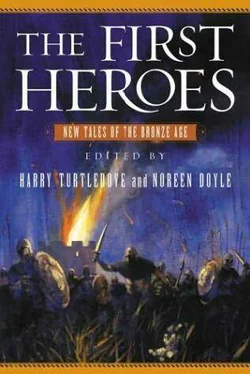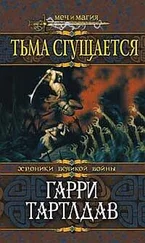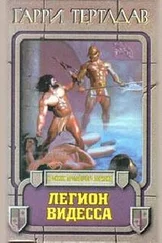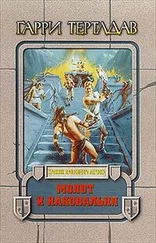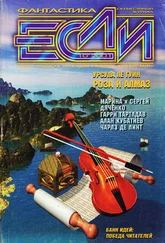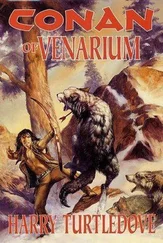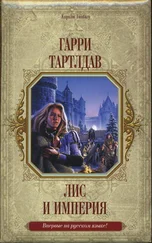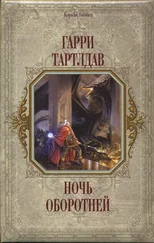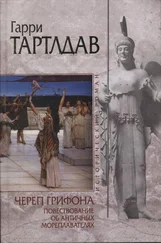Гарри Тертлдав - The First Heroes
Здесь есть возможность читать онлайн «Гарри Тертлдав - The First Heroes» весь текст электронной книги совершенно бесплатно (целиком полную версию без сокращений). В некоторых случаях можно слушать аудио, скачать через торрент в формате fb2 и присутствует краткое содержание. Жанр: Фантастика и фэнтези, на английском языке. Описание произведения, (предисловие) а так же отзывы посетителей доступны на портале библиотеки ЛибКат.
- Название:The First Heroes
- Автор:
- Жанр:
- Год:неизвестен
- ISBN:нет данных
- Рейтинг книги:3 / 5. Голосов: 1
-
Избранное:Добавить в избранное
- Отзывы:
-
Ваша оценка:
- 60
- 1
- 2
- 3
- 4
- 5
The First Heroes: краткое содержание, описание и аннотация
Предлагаем к чтению аннотацию, описание, краткое содержание или предисловие (зависит от того, что написал сам автор книги «The First Heroes»). Если вы не нашли необходимую информацию о книге — напишите в комментариях, мы постараемся отыскать её.
The First Heroes — читать онлайн бесплатно полную книгу (весь текст) целиком
Ниже представлен текст книги, разбитый по страницам. Система сохранения места последней прочитанной страницы, позволяет с удобством читать онлайн бесплатно книгу «The First Heroes», без необходимости каждый раз заново искать на чём Вы остановились. Поставьте закладку, и сможете в любой момент перейти на страницу, на которой закончили чтение.
Интервал:
Закладка:
The First Heroes
New Tales of the Bronze Age
Harry Turtledove and Noreen Doyle
in memory of
POUL ANDERSON 1926-2001
BRONZE AGE:
(noun)
1) archaeology/history;
a period of cultural development marked by the use of copper alloys, such as bronze.
2) Greek mythology;
the era of the third race of humanity created by Zeus.
Their armor, their houses, and their tools were bronze, for they had no iron.
Their strength was great, their arms unconquerable.
Terrible and strong, they were followed by the nobler and more righteous heroic race that fought the Trojan War.
Introduction
Storytellers have been writing and rewriting the Bronze Age since the Bronze Age, and their enthusiasm shows no sign of waning.
Sometime before 1500 B.C. an Egyptian wrote down a series of stories about King Khufu, for whom the Great Pyramid had been built a thousand years before. In the seventh century B.C. Babylonian scribes incised onto eleven clay tablets their own adaptation of the much earlier Sumerian epic of Gilgamesh—and recorded a sequel on the twelfth. Homer's tales of the Trojans and Achaians inspired Mediaeval and Renaissance romances. All of this, and everything else you have ever read, is possible because literature itself was born during the Bronze Age. This singular invention, the written narrative, preserved for us the names and deeds and a little of the personalities of the first recorded individuals.
It was the beginning of history—literally, as archaeologists define the period before the development of writing as prehistory.
It was an age of new technology and experimentation (writing, metallurgy, the wheel) and evolving social forms (statehood, standing armies, the merchant class). It was an age of exploration, when Egyptian expeditions set sail for the incense terraces of Punt and Odysseus wandered his way home. And it was an age of magic: the gods so familiar to us, from Ishtar to Poseidon, attained recognizable name and form and power.
So we turn our eyes toward a past when kings were gods, voyagers were heroes, and tin was the key to cutting-edge technology. And as we look back—and forward and a little sideways—we see that Bronze Age figures, at once familiar and strange, remain around us everywhere.
The past is a foreign country that cannot be visited but rather only glimpsed on the horizon. When we try for a closer view, through the spyglass of history or archaeology, our view is invariably distorted by distance, by our choice of focus, and by the curvature of our lens. If, however, we were to attempt landfall, could we navigate the currents of time to an intended moorage? And would we find a world any more familiar than might a sailor who, informed by rumor and legend and sightings through his telescope, has disembarked from his storm-swept ship onto an alien shore? Would the landscape around us remain distorted and strange to our expectations?
Renowned author Gene Wolfe takes us on such a voyage across the ancient Black Sea and the wider gulf of time itself. He shows us anew people, places, and events that, separated from us by more than three and a half millennia, authors and filmmakers have made unjustly familiar.
The Lost Pilgrim
Gene Wolfe
Before leaving my own period, I I resolved to keep a diary; and indeed I told several others I would, and promised to let them see it upon my return. Yesterday I arrived, captured no Pukz, and compiled no text. No more inauspicious beginning could be imagined.
I will not touch my emergency rations. I am hungry, and there is nothing to eat; but how absurd it would be to begin in such a fashion! No. Absolutely not. Let me finish this, and I will go off in search of breakfast.
To begin. I find myself upon a beach, very beautiful and very empty, but rather too hot and much too shadeless to be pleasant. "Very empty," I said, but how can I convey just how empty it really is? (Pukz 1—3)
As you see, there is sun and there is water, the former remarkably hot and bright, the latter remarkably blue and clean. There is no shade, and no one who— A sail! Some kind of sailboat is headed straight for this beach. It seems too small, but this could be it. (Puk 4)
I cannot possibly describe everything that happened today. There was far, far too much. I can only give a rough outline. But first I should say that I am no longer sure why I am here, if I ever was. On the beach last night, just after I arrived, I felt no doubts. Either I knew why I had come, or I did not think about it. There was that time when they were going to send me out to join the whateveritwas expedition—the little man with the glasses. But I do not think this is that; this is something else.
Not the man getting nailed up, either.
It will come to me. I am sure it will. In such a process of regression there cannot help but be metal confusion. Do I mean metal? The women's armor was gold or brass. Something like that. They marched out onto the beach, a long line of them, all in the gold armor. I did not know they were women.
I hid behind rocks and took Pukz. (See Pukz 5—9) The reflected glare made it difficult, but I got some good shots just the same.
They banged their spears on their shields and made a terrible noise, but when the boat came close enough for us to see the men on it (Pukz 10 and 11) they marched back up onto the hill behind me and stood on the crest. It was then that I realized they were women; I made a search for "women in armor" and found more than a thousand references, but all those I examined were to Joan of Arc or similar figures. This was not one woman but several hundreds.
I do not believe there should be women in armor, anyway. Or men in armor, like those who got off the boat. Swords, perhaps. Swords might be all right. And the name of the boat should be two words, I think.
The men who got off this boat are young and tough-looking. There is a book of prayers in my pack, and I am quite certain it was to be a talisman. "O God, save me by thy name and defend my cause by thy might." But I cannot imagine these men being impressed by any prayers.
Some of these men were in armor and some were not. One who had no armor and no weapons left the rest and started up the slope. He has an intelligent face, and though his staff seemed sinister, I decided to risk everything. To tell the truth I thought he had seen me and was coming to ask what I wanted. I was wrong, but he would surely have seen me as soon as he took a few more steps. At any rate, I switched on my translator and stood up. He was surprised, I believe, at my black clothes and the buckles on my shoes; but he is a very smooth man, always exceedingly polite. His name is Ekkiawn. Or something like that. (Puk 12) Ekkiawn is as near as I can get to the pronunciation.
I asked where he and the others were going, and when he told me, suggested that I might go with them, mentioning that I could talk to the Native Americans. He said it was impossible, that they had sworn to accept no further volunteers, that he could speak the language of Kolkkis himself, and that the upper classes of Kolkkis all spoke English. I, of course, then asked him to say something in English and switched off my translator. I could not understand a word of it.
At this point he began to walk again, marking each stride with his beautiful staff, a staff of polished hardwood on which a carved snake writhes. I followed him, switched my translator back on, and complimented him on his staff.
He smiled and stroked the snake. "My father permits me to use it," he said. "The serpent on his own is real, of course. Our tongues are like our emblems, I'm afraid. He can persuade anyone of anything. Compared to him, my own tongue is mere wood."
Читать дальшеИнтервал:
Закладка:
Похожие книги на «The First Heroes»
Представляем Вашему вниманию похожие книги на «The First Heroes» списком для выбора. Мы отобрали схожую по названию и смыслу литературу в надежде предоставить читателям больше вариантов отыскать новые, интересные, ещё непрочитанные произведения.
Обсуждение, отзывы о книге «The First Heroes» и просто собственные мнения читателей. Оставьте ваши комментарии, напишите, что Вы думаете о произведении, его смысле или главных героях. Укажите что конкретно понравилось, а что нет, и почему Вы так считаете.
